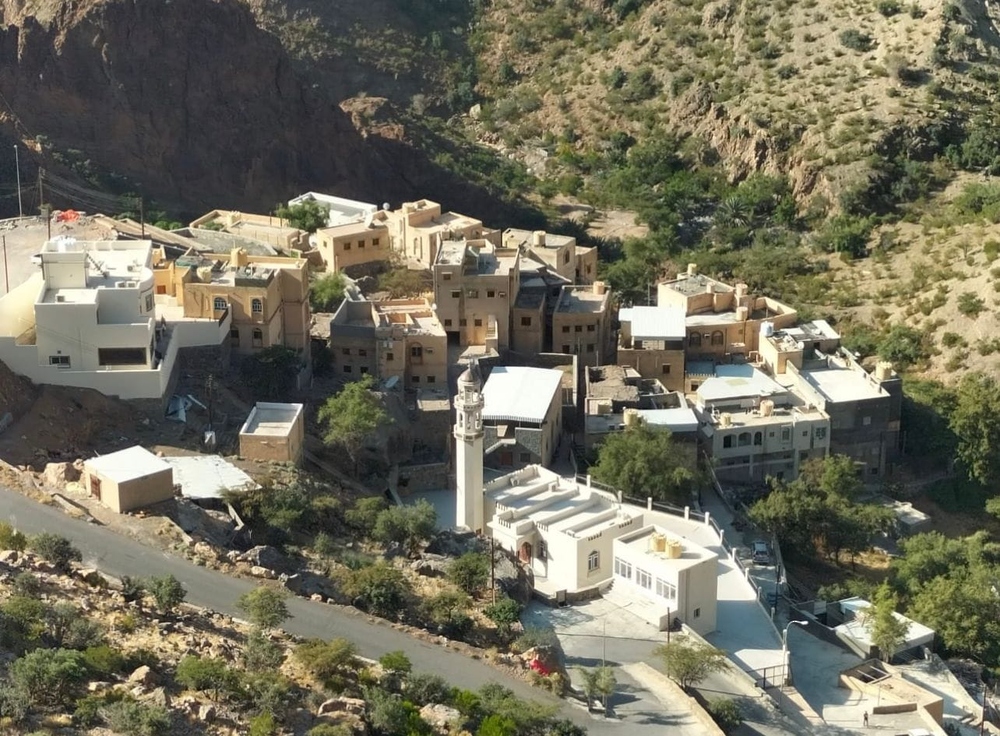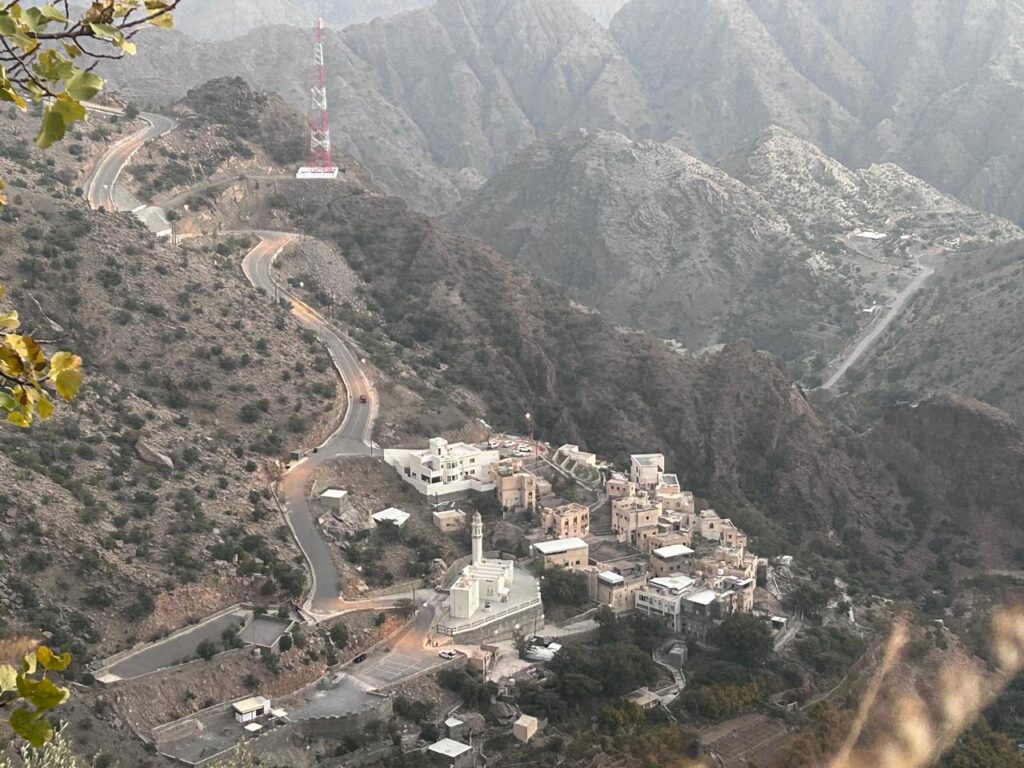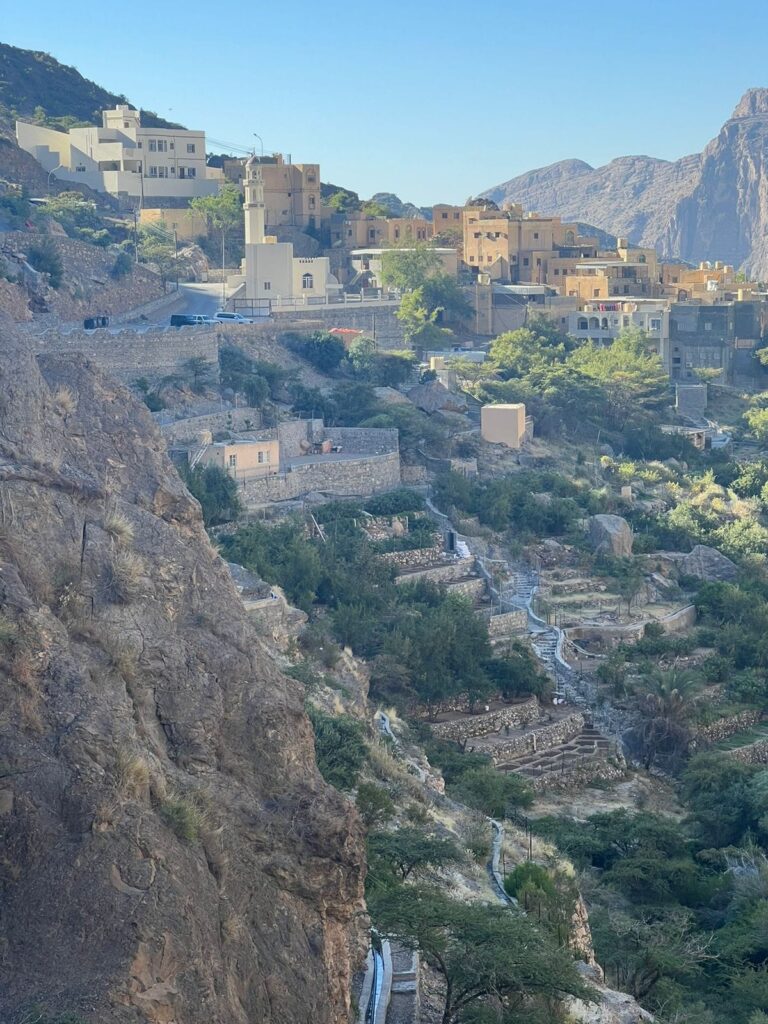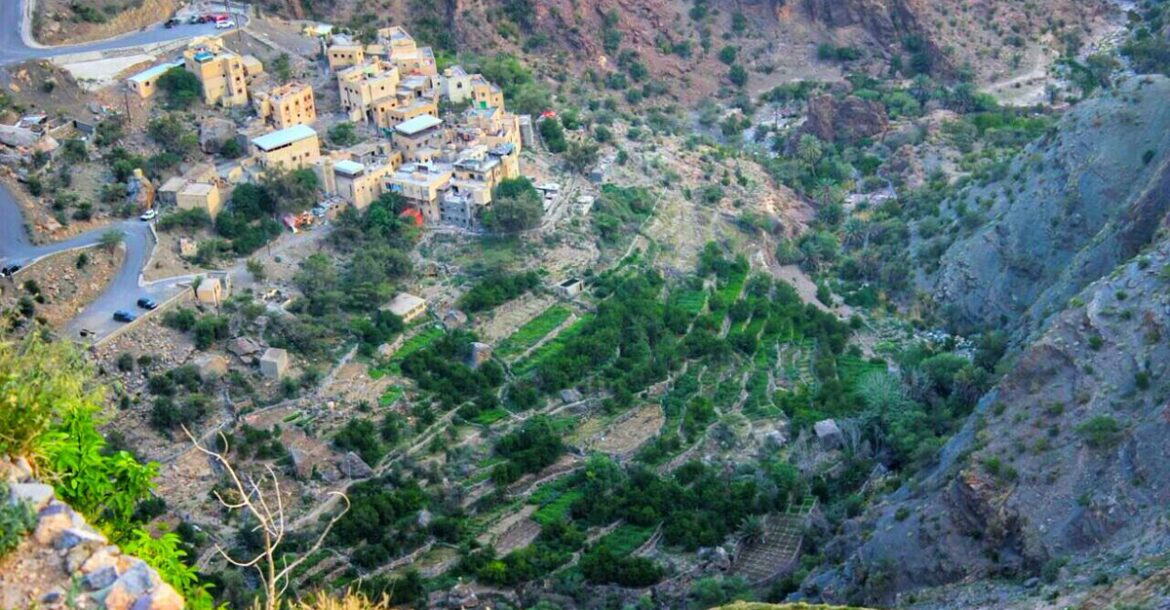Tucked beneath the towering ridges of Al Jabal Al Akhdar, where cloud veils lift like curtains revealing nature’s raw script, lies the mountain village of Al Qasha — a place where geology, greenery, and generations of heritage converge.

The village’s name itself — derived from the dramatic descent of rocks toward its center and an old phrase meaning “the dispersal of clouds” — encapsulates its poetic relationship with nature.
Al Qasha’s terrain is as textured as its history. With its position at the eastern foot of a mountain and at the end of a long terrace system, the village is naturally fortified by stunning cliffs and fertile steps. In summer, the temperature dips just enough to escape the swelter of the plains, while winter ushers in a bracing cold, ideal for those chasing a change in pace and climate.
Read More
- Oman to soft launch national “Maal” payment card on November 20
- Fireworks shows announced in Oman for National Day celebrations
- ROP cracks down on 122 drivers for public disturbance in Muscat
- Oman’s coastline continues to expand with luxury with the opening of the Arabian Sea Resort
- Oman, Bahrain Foreign Ministers hold key talks ahead of GCC summit

Yet Al Qasha is more than its weather. The village flourishes with layered agricultural terraces, alive with pomegranate, walnut, apricot, and peach trees. The scent of garlic and onions in the breeze marks the rhythm of the seasons. And during the rose and fruit harvests of summer, tourists flock to experience the age-old techniques of rose water distillation and to bite into Al Jabal Al Akhdar’s prized pomegranates, of which Al Qasha is a key contributor.
Scattered ancient graves, fossilized terrace walls, and smoke-marked caves speak of human presence dating back thousands of years. Unlike typical Islamic burial sites, these archaeological remains suggest pre-Islamic roots, offering a fascinating layer for archaeologists and storytellers alike.

And while the terrain may seem remote, Al Qasha is remarkably accessible — thanks to well-preserved hiking trails like Al-Lamd Road and Maslak Al-Magharat. These trails, once the lifelines of trade and travel, now invite trekkers to immerse themselves in ravines, waterfalls, and natural springs like Wadi Al Ayn and Sharjat Al Anbur. Along these paths, rare tropical “sugar” trees flourish, making Al Qasha a botanical wonder amid the mountains.
Heritage, too, stands tall. The village’s historic mosques — Al-Balad, Al-Wadi, Al-Jafra, and Al-Hijrain — and the life-giving aflaj and springs form a spiritual and agricultural backbone, still functional, still revered.







